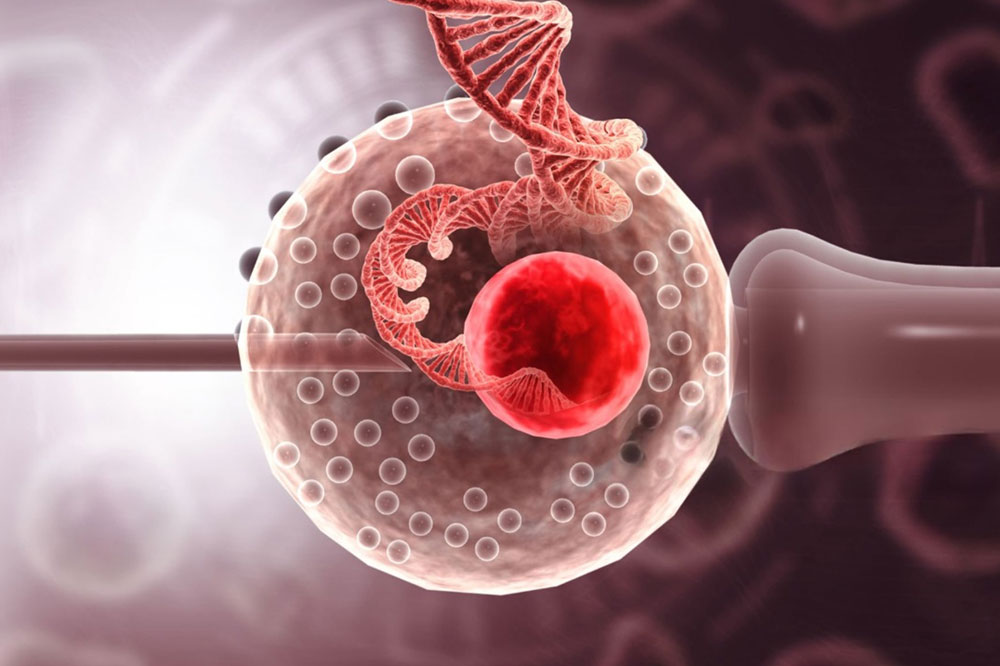PGS (preimplantation genetic screening)
PGS (preimplantation genetic screening)
Preimplantation Genetic Screening (PGS) is a cutting-edge genetic test used to evaluate embryos created through In Vitro Fertilization (IVF) for chromosomal abnormalities before implantation. By screening embryos for genetic issues, PGS helps to identify healthy embryos with the correct number of chromosomes, improving the chances of a successful pregnancy and reducing the risk of miscarriage or genetic disorders.
At TheFertilife, we offer PGS as part of our advanced fertility treatments to ensure that only the healthiest embryos are selected for transfer, giving you the best chance of a healthy baby.


What is PGS?
Preimplantation Genetic Screening (PGS) is a process that involves testing embryos for chromosomal abnormalities, such as extra or missing chromosomes, which can lead to conditions like Down syndrome, Turner syndrome, and other genetic disorders. PGS is typically performed during an IVF cycle after embryos have been created in the lab and have reached the blastocyst stage (the 5-6 day stage of embryo development).
During the procedure, a small sample of cells is taken from each embryo and tested for chromosomal abnormalities. This allows embryologists to select the embryos that are most likely to result in a healthy pregnancy, improving the chances of success in IVF.
How PGS Works
PGS is performed after IVF and embryo culture. Here’s a general overview of the steps involved in PGS:
Ovarian Stimulation and Egg Retrieval: As with a standard IVF cycle, the woman undergoes ovarian stimulation to produce multiple eggs. These eggs are retrieved from the ovaries and fertilized with sperm in the laboratory.
Embryo Development: The embryos are cultured in the lab for 5-6 days, allowing them to reach the blastocyst stage, which is when the embryo has developed enough to be biopsied for PGS testing.
Embryo Biopsy: A few cells are carefully removed from the outer layer of the embryo (trophectoderm) for analysis. This procedure does not harm the embryo, as only a small number of cells are removed.
Genetic Testing: The cells are sent to a genetic laboratory where they are tested for chromosomal abnormalities. The lab analyzes the number and structure of the chromosomes in each embryo.
Embryo Selection: After the genetic test results are available, the embryos are ranked based on the number of chromosomes they contain. Embryos with normal chromosomal makeup (euploid) are considered the healthiest and most likely to result in a successful pregnancy.
Embryo Transfer: The most genetically healthy embryos (those without chromosomal abnormalities) are selected for transfer to the uterus. The remaining embryos can be frozen for future use.
Why is PGS Important?
PGS offers several key benefits for women undergoing IVF and for couples who are concerned about genetic conditions:
Improved Implantation Rates: By selecting embryos with the correct number of chromosomes, PGS increases the likelihood of successful implantation and pregnancy, as chromosomal abnormalities are one of the leading causes of IVF failure.
Reduced Risk of Miscarriage: Many miscarriages are caused by embryos with chromosomal abnormalities. PGS helps reduce the risk of miscarriage by ensuring that only genetically normal embryos are transferred.
Decreased Risk of Genetic Disorders: PGS helps screen for genetic disorders related to chromosomal abnormalities, such as Down syndrome, Edward syndrome, and Patau syndrome, giving parents peace of mind and reducing the risk of passing on hereditary conditions.
Higher IVF Success Rates: Studies show that PGS can significantly increase the chances of a successful pregnancy, particularly for women of advanced maternal age or those with a history of failed IVF cycles.
Optimal Use of Frozen Embryos: For couples undergoing multiple IVF cycles, PGS allows for the creation and freezing of healthy embryos that can be used in future cycles, optimizing the use of available embryos.
When is PGS Recommended?
PGS can be recommended in various situations to help increase the chances of a successful pregnancy:
Advanced Maternal Age: Women over 35 may have a higher risk of chromosomal abnormalities in their eggs, which can lead to failed IVF cycles, miscarriages, or genetic disorders. PGS can improve the chances of transferring a healthy embryo.
Repeated IVF Failures: Couples who have had multiple failed IVF cycles may benefit from PGS to select embryos that are more likely to implant and result in a healthy pregnancy.
Recurrent Miscarriages: Women who have experienced multiple miscarriages may have chromosomally abnormal embryos. PGS can help identify embryos with normal chromosomal patterns, reducing the risk of miscarriage.
Known Genetic Disorders: Couples with a family history of genetic disorders or those who are carriers of certain inherited conditions can use PGS to avoid passing on these genetic issues.
Sexual Health and Family Planning: PGS can also be used for family balancing, allowing parents to select embryos of a specific sex if desired (gender selection), though this is subject to ethical guidelines and considerations.
What are the Benefits of PGS?
PGS offers significant benefits for both patients and fertility specialists:
Increased IVF Success Rates: By ensuring that only healthy, chromosomally normal embryos are transferred, PGS significantly improves the chances of a successful pregnancy and birth.
Reduced Risk of Genetic Disorders: PGS helps identify embryos that are at risk for genetic disorders like Down syndrome, ensuring that only embryos with a normal number of chromosomes are selected for transfer.
Optimized Embryo Selection: PGS allows for the best possible selection of embryos, improving overall outcomes and ensuring that couples do not waste time and resources on embryos with genetic issues.
Peace of Mind: For many couples, PGS offers peace of mind knowing that they are taking every step to ensure a healthy pregnancy and baby. It can reduce anxiety related to the genetic health of the baby.
Increased Pregnancy and Live Birth Rates: With PGS, the likelihood of a live birth increases, particularly for older women or those who have struggled with infertility in the past.
What Are the Risks of PGS?
While PGS is a highly accurate and effective tool, there are some potential risks and limitations to consider:
Embryo Viability: Although PGS increases the chances of selecting a healthy embryo, not all embryos may be suitable for transfer, particularly if they are found to have chromosomal abnormalities. This can limit the number of viable embryos available for transfer.
False Positives/Negatives: While rare, there is a small chance of a false positive or false negative result. In some cases, embryos that are genetically normal may be misclassified, or embryos that are abnormal may be incorrectly classified as normal.
Emotional Impact: The decision to discard embryos with genetic abnormalities may be emotionally challenging for some couples, and the process of testing may add complexity to the IVF experience.
Is PGS Right for You?
PGS can be an excellent option for couples who are looking to maximize their chances of a healthy pregnancy and reduce the risk of genetic disorders. It is particularly useful for women of advanced maternal age, those with recurrent miscarriage, or those with a history of IVF failure.
At TheFertilife, we understand how important it is to make informed decisions about your fertility treatment. Our fertility specialists will work with you to determine whether PGS is right for your situation, offering guidance and support throughout your IVF journey.

Best Infertility Doctor in Gurgaon, Dr. Anshika Lekhi, a renowned IVF specialist, offers exceptional infertility treatments.
Pages
Contact Us
- 7505 Basement Bougainville Street, near Supermart 2, Sector 43, Gurugram, Haryana 122009
- 98735 24270
- info@thefertilife.com
Updates
Check New updates below.


Copyright ©2025 | All Rights Reserved.
